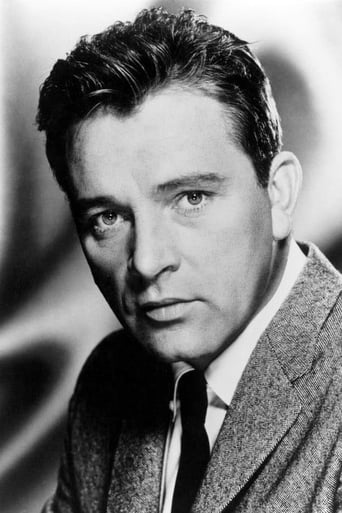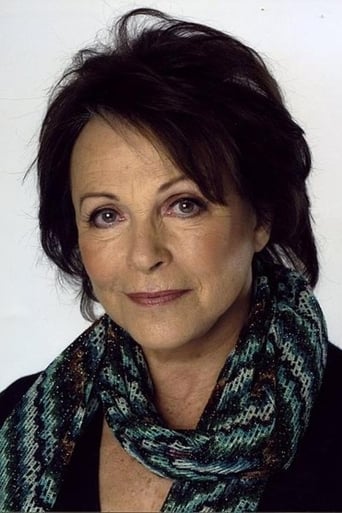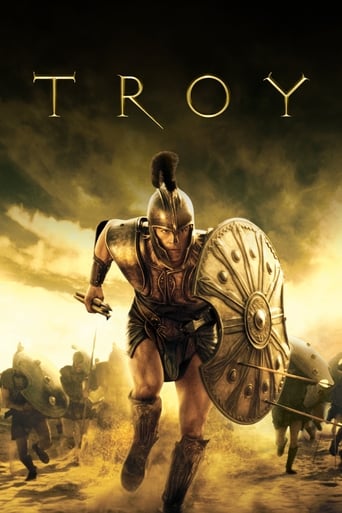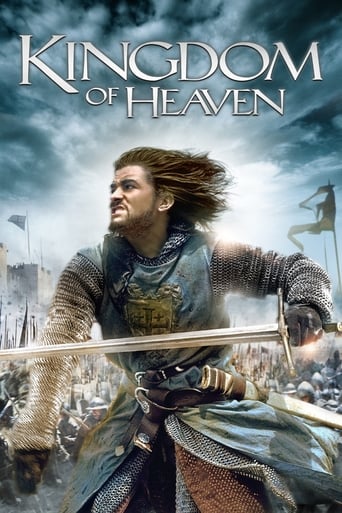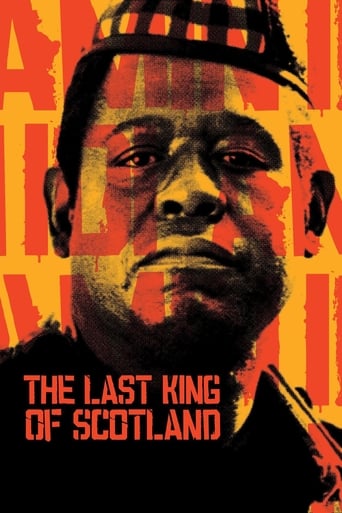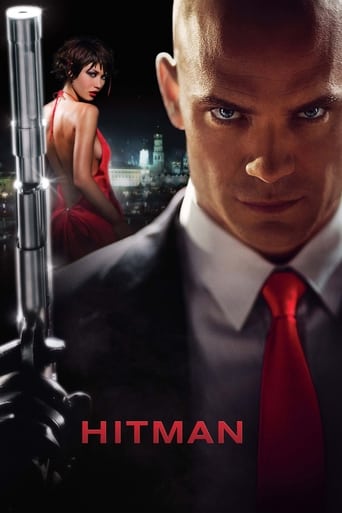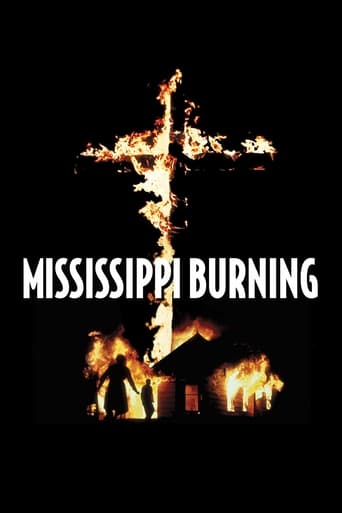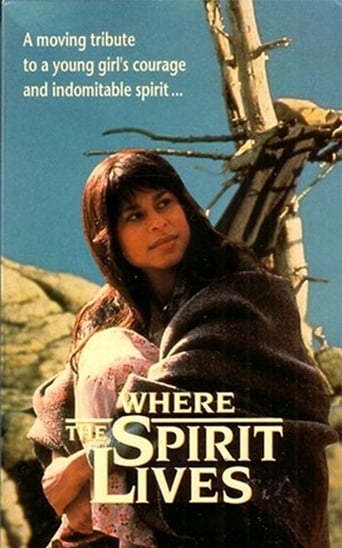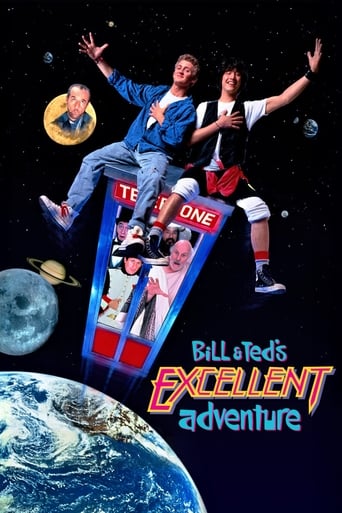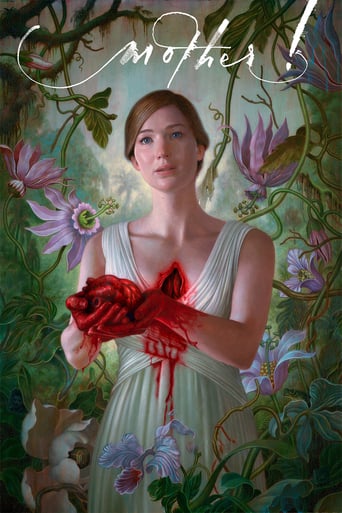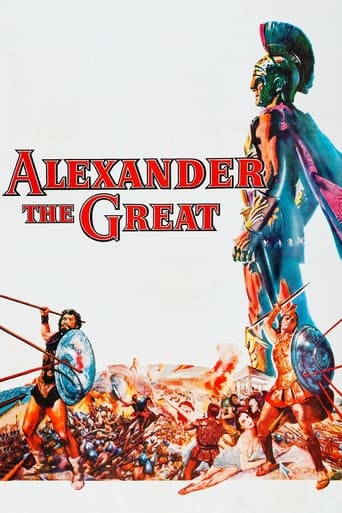
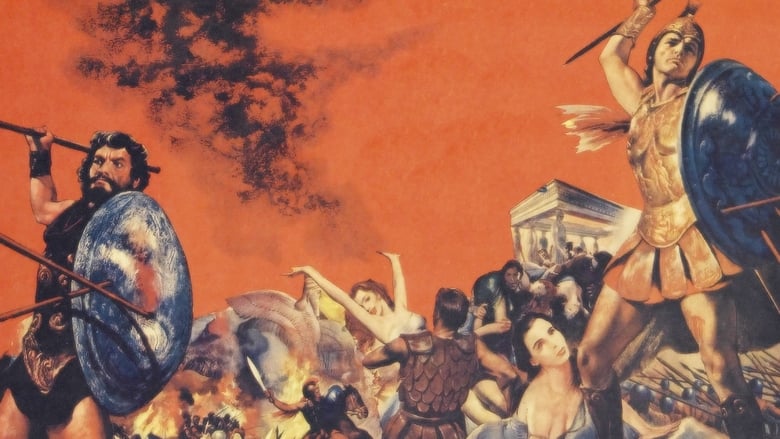
Alexander the Great (1956)
An engrossing spectacle set in the 4th-century BC, in which Alexander of Greece leads his troops forth, conquering all of the known world, in the belief that the Greek way of thinking will bring enlightenment to people. The son of the barbaric and ruthless King Philip of Macedonia, Alexander achieved glory in his short but remarkable life.
Watch Trailer
Cast


Similar titles
Reviews
Richard Burton stars as Alexander in this epic Cinemascope biopic. The first half focuses on Alexander's relationship with his father Philip of Macedonia (an almost unrecognizable Fredric March) who conquered Greece, and the second on Alexander's conquering of the rest of the known world after his father's assassination. Burton is good, and it's a handsomely mounted production, but it ultimately feels like over 2 hours that leads not much of anywhere. The intriguing supporting cast includes Harry Andrews as the Persian King Darius, Stanley Baker, Peter Cushing and Peter Wyngarde.
Historic , big-budgeted and breathtaking epic movie with stunningly battle scenes but overlong and a little boring pacing ; being subsequently remade by Oliver Stone (2003) in a mammoth version. The movie centers about Alexander the Great (Richard Burton at his stormy best and subsequently played by Colin Farrell) , the famous Greek conqueror of the fourth century and disciple of Aristoteles , he was born in Pella and died Babylone (356-323 B.C) . He was son of Philip II(Fredric March and posteriorly played by Val Kilmer) King of Macedonya who vanquished Greeks in Queronea , unified the cities and Greece in the league of Corinto, but he was murdered . It starts the year 326 B.C. in a divided , troubled , bloody Greece . Olympia (a delightful Danielle Darrieux , ulterior role by Angelina Jolie), Alexander's mother , will make it impossible to rule over for her son and proclaim him emperor . Alexander, disciple of Aristoteles (Barry Jones , subsequent role by Christopher Plummer), will fight against Persians commanded by Dario the Grat (Harry Andrews) who will be vanquished in Granico, Issos and Gaugamela. Alexander conquered Tracia , destroyed Tebas , submitted Capadocia, Lydia , Biblos , Sidon , Tiro , Jerusalen , Persepolis , Susa , Babylone (with firing included), Mesopotamia , Asyria and founded Alexandropolis . Alexander resolved the Gordian knot (by king Gordio) whose prophecy would become him as King of Asia . But a vengeful Alexander kills various friends and generals as Cleitos (Gustavo Rojo) , Parmenius (Niall MacGuinnis) and Philotas (Ruben Rojo) . Emperor Alexander married Babylonian princess named Roxana and arrived in Samarcanda, Khiver pass (Afganistan) , Hifasis and India , crossed the Hindo-Kush where he was infected by fevers and died at 33 years old (323 before Christ). The empire will split amongst various generals : Ptolemy inherits Egypt and Palestina, ; Antioco : Antioquia ; Seleuco takes Syria , and Casandro rules over Macedonia and Greece .Big budget epic about the legendary Greek conqueror . Here we find Alexander is the result of a dysfunctional royal family who wishes to create an idealized world modeled in Greek style , this he does by conquering around the world before dying at the age of 33 years old. The overall casting is important , the remarkable ¨middle order actors¨ include prestigious British actors as Peter Cushing , Stanley Baker , Niall MacGuinnis , Claire Bloom, , Michael Hordern as Demosthenes , Helmut Dantine , Barry Jones and Spanish actors as Marisa De Leza as Euridice , Gustavo Rojo , Ruben Rojo , Julio Peña , Virgilio Texeira and many others . The great main and secondary casting help to overcome the sluggish developing . Runtime film is overlong and is a little bit tiring because the running is two hours and some and it tires too much. At the picture there are historic events, overwhelming battles, spectacular scenarios and gorgeous landscapes . First rate production design : impressive temples, palaces, monuments..,the several battle scenes are effectively staged by thousands of people , featuring loads of arrows and spears . Grateful acknowledge meant is made of the co-operation shown by the Spanish government , its Army, the Ministry of Information and Turismo and to the officials and people of the various localities in Spain in which this film was made as Madrid , Manzanares , El Molar and Malaga. Colorful and riveting cinematography by Robert Krasker , in Techniclor and Cinemarcope ; similarly to extraordinary and fascinating Mario Nascimbene's music score , being well conducted by Franco Ferrara . Robert Rossen's direction is nice though some moments results to be a bit confusing and embarrassing . Rating : Although is a much underrated epic turns out to be a good movie .
Throughout his rather short life (33 years quite short for its time), Alexander the Great conquered much of the Middle East and a TV programme titled "In the Footsteps of Alexander the Great" by Michael Wood would provide a fascinating but complex insight and on whether one would consider him to be a hero or villain and even two films have been made and it may even explain why these have been so-sos.On the 1955 film starring Richard Burton, this one was a bit dreary and the likeliest reason for its failure was due to the inability of screenwriter, producer and director Robert Rossen to hold the story together and it sometimes became known as "Alexander the Bore" and Burton may have been miscast as the Greek warrior but the plus side of Burton playing Alexander was his remarkable voice and the fact is that it looked to be that Burton played Alexander the Great in a similar fashion as he did when starring as Marcellus in The Robe. The Oliver Stone version that was premiered in 2004 looked to be more promising but it's not necessarily better and had also been heavily criticised for a number of reasons. Therefore, the complicated history of a warrior whom conquered the middle east 2.300 years ago may explain the reason for the failure of those two films.
Alexander the Great set out with an army in 334 BC to conquer the world and had just about conquered double what was known of western civilization at the time. Had he not died at the age of 33 touching on the borders of current India, who knows what might have happened.Richard Burton with years of classical training behind him plays Alexander as the charismatic prince of Macedonia who arouses both the admiration and jealousy of his father Philip played by Fredric March.The relationship between Philip and Alexander is what drives the film. The problems between them are not to unusual to more modern monarchies. The crown prince is always a rival source of power, by dint of his position he gets his own personal followers and that is always of concerned to the king.In addition Philip is in doubt about his kid's paternity, doubt encouraged by his wife Danielle Darrieux, sick and tired of his infidelities.As played by March, Philip is a parvenu, leading a warrior state and a man of little learning. He remedies that for his son by getting the best teacher around for him in Aristotle, played by Barry Jones. Aristotle gives Alexander the culture that Philip lacks and instills in him a belief of the superiority of Greek Culture against the rest of the world and it was his duty to spread it. Doesn't that ever sound familiar.When Philip is assassinated, Alexander succeeds him and after securing the backing of the seven leading cities of Greece he moves east and south in an expedition of conquest. Burton's performance is grand because in his speech and in his closeups you see all the various forces at work in Alexander, the idealism, the egoism, the arrogance, it's all there in various mixtures at any given time of the film.The open homosexuality that characterized the production of Alexander in 2005 is not present in this film. The film does show Alexander's associates to be male which was not uncommon in Greek society back in the day and that women were there to breed, nothing more. Of course they were something more in terms of their own agendas as Danielle Darrieux plainly shows. Might be a good idea to view both films back to back and see just how The Code affected productions back in 1956.


